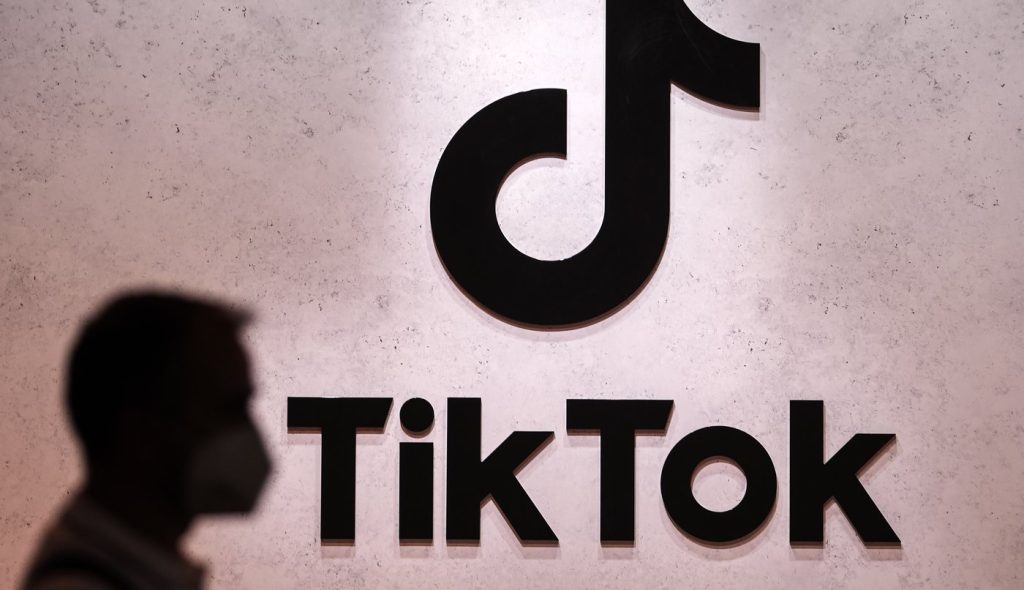In less than a month, TikTok may find itself under new ownership, face another ban, or receive another postponement allowing it to continue operating in the United States. The uncertainty surrounding the popular video-sharing app has persisted since a law mandating its China-based parent company, ByteDance, to divest took effect on January 19. After taking office, former President Donald Trump signed an executive order granting TikTok a 75-day reprieve that delayed enforcement of the statute until April 5.
During a flight back to Washington from Florida, Trump mentioned that a deal could be reached soon but did not disclose any specifics about interested buyers. However, he revealed that the administration is in talks with "four different groups" regarding TikTok's future.
If TikTok is not sold to an approved buyer by April 5, the law that bans it nationwide will go back into effect. It is worth noting that the deadline for the executive order may be flexible, and Trump has indicated that it may be extended if necessary. This executive order came in the wake of a unanimous Supreme Court ruling that upheld the requirement for ByteDance to divest or face a ban. Following the ruling, TikTok went offline for U.S. users but returned after Trump's promise to delay the ban.
In his tenure, Trump attempted to ban TikTok on national security grounds, a move that was interrupted by legal challenges. He later shifted his stance during the previous year’s presidential election, attributing part of his success in attracting younger voters to the platform. The decision to keep TikTok operational through an executive order has faced scrutiny but has not encountered legal challenges.
As for potential buyers, several interested parties have emerged in recent months. Although it remains unclear if ByteDance intends to sell TikTok, Vice President JD Vance, designated to oversee any potential deal, has reached out to companies like the artificial intelligence startup Perplexity AI for information on their bids. In January, Perplexity presented ByteDance with a merger proposal that would combine its operations with TikTok’s U.S. segment.
Another potential buyer is a consortium led by billionaire Frank McCourt, which recently brought on Reddit co-founder Alexis Ohanian as a strategic advisor. Reportedly, this consortium has offered ByteDance $20 billion in cash for TikTok's U.S. operations and aims to redesign the app utilizing blockchain technology for enhanced user control over data. In addition, Jesse Tinsley, the founder of Employer.com, has formed another consortium that includes the CEO of the gaming platform Roblox and claims to be offering over $30 billion for TikTok.
Trump also indicated that Microsoft is interested in acquiring TikTok, alongside other parties like former Treasury Secretary Steve Mnuchin and Rumble, a video platform popular among conservatives. Rumble has expressed its interest in partnering as a tech ally for TikTok in a bid to purchase the platform.
Looking ahead, Trump has communicated his desire to have the U.S. government broker a deal for 50% control of TikTok. However, the administration hasn’t elaborated on what this arrangement would entail or the government's prospective role in the app's future. Various bidders have proposed allowing the U.S. to invest in or gain equity in TikTok, with Trump previously suggesting that a government-owned investment fund could facilitate U.S. ownership.
Chinese officials, essential for approving any deal, appear to have softened their position compared to a year ago, when they labeled the divestment push a “robber's act.” In January, Chinese Foreign Ministry spokeswoman Mao Ning stated that business operations should be decided independently by companies based on market principles, emphasizing compliance with laws and regulations applicable to Chinese companies.
Should ByteDance engage in negotiations, critical issues regarding the proprietary algorithm that shapes TikTok’s content feeds and the flow of information between the U.S. and the global markets will need to be addressed.










